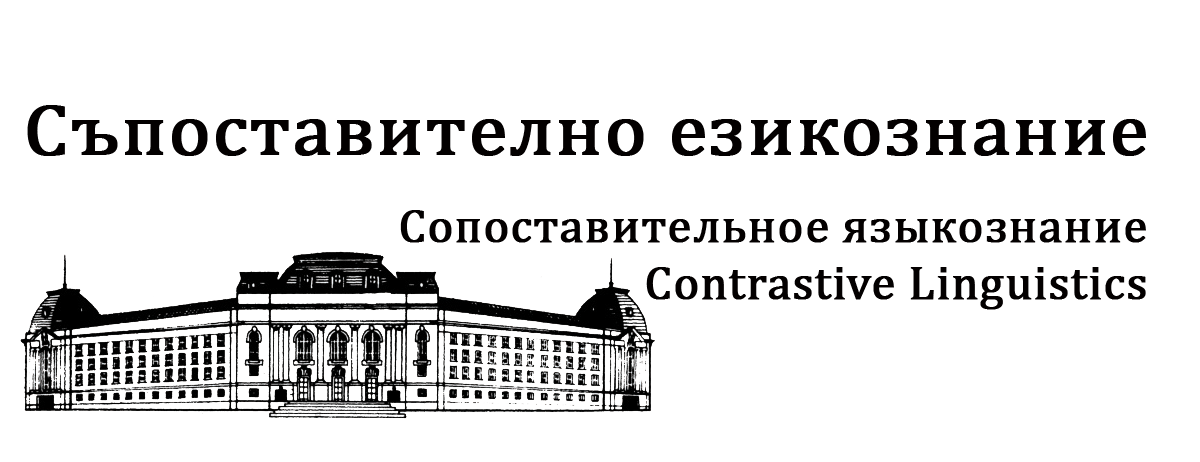Съдържанието и резюметата можете да изтеглите оттук. Съдържание Съпоставителни изследвания Петя Асенова (София), Уте Дукова (Франкфурт на Майн) – Homo Balсanicus в оппозиции свет / мрак // 5 Summary/Abstract: The…
Автор: Ангелина Иванова
2012 (ХХХVII), № 2
Съдържанието и резюметата можете да свалите оттук. Съдържание Съпоставителни изследвания Райна Холанди (Благоевград) – Относно фразеологичната вариантност // 5 Summary/Abstract: The article sets the criteria for defining the phenomenon of…
2012 (ХХХVII), № 1
Текста на съдържанието можете да изтеглите оттук. Съдържание Съпоставителни изследвания Людмила Ухлиржова (Прага) – Общност и многообразие на словореда на клитиките (Съпоставително изследване на българския и чешкия език). Част ІV…
2012 – Съпоставително езикознание
2012 (ХХХVII), № 1 2012 (ХХХVII), № 2 2012 (ХХХVII), № 3 2012 (ХХХVII), № 4
2011 (XXXVI), № 3
2011 (XXXVI), № 3 Съдържанието можете да изтеглите оттук. Съдържание Съпоставителни изследвания Людмила Ухлиржова (Прага) – Общност и многообразие на словореда на клитиките (Съпоставително изследване на българския и чешкия език).…
2011 (XXXVI), № 2
Съдържанието можете да изтеглите оттук. Съдържание Янко БЪЧВАРОВ – Списание „Съпоставително езикознание“ на път към зрелостта (ретроспективен поглед, еволюция, постижения и перспективи) // 5 В статье прослеживается 35-летняя история журнала…
2011 (XXXVI), № 1
Съдържанието и резюметата можете да изтеглите оттук. Съдържание Съпоставителни изследвания Людмила Ухлиржова (Прага) – Общност и многообразие на словореда на клитиките (Съпоставително изследване на българския и чешкия език). Част І…
